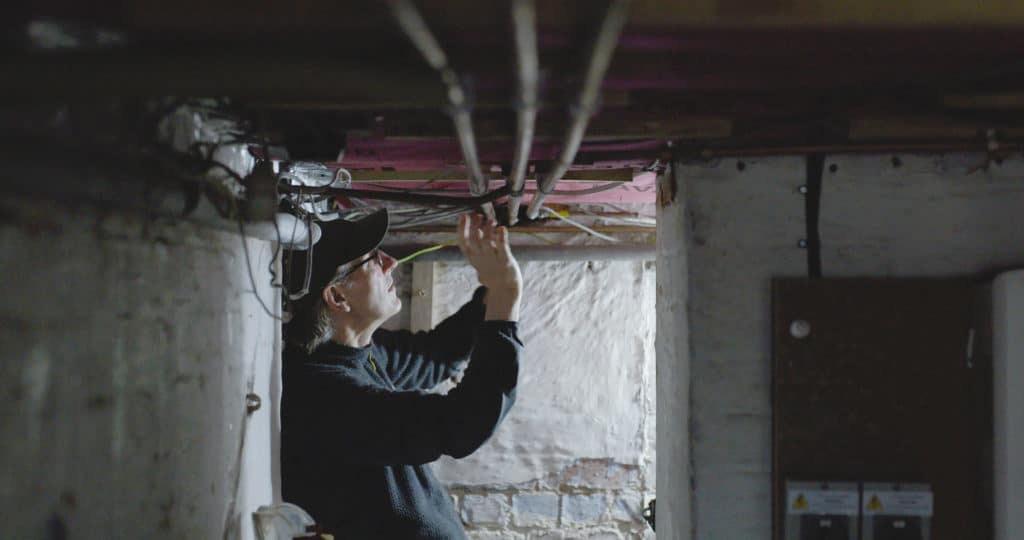Learnings and solutions shared directly from local authorities.
The UK must upgrade nearly 11million homes by 2035 to meet its climate targets. Action to create better homes doesn’t only mean lower emissions – it tackles fuel poverty and inequality, and boosts local economies too.
By playing a leading role in this challenge, councils can maximise the benefits for local people. This year, Ashden helped local authorities in South West England understand the barriers to progress – and work together to create change. Insights from this process can help any council power up its domestic retrofit plans.
What are the challenges facing local authorities?
Councils often lack full knowledge of the housing stock in their area – with questions over the mix of tenures, the age of buildings, the spread of energy performance ratings, and planned renovation works. Many authorities also lack retrofit strategies, and the officer capacity and experience to put bids in for government funding. Even when bids are possible, government programmes have been stop-start and don’t always support the best outcomes – such as area-based strategies and encouraging ‘whole house’ retrofits over piecemeal approaches.
The Local Authority Delivery Scheme has been giving out grants for councils to retrofit low energy efficiency homes where residents are on low incomes. But there is little funding or policy support for the able-to-pay sector – particularly after the troubled Green Homes Grant scheme was ended earlier this year.
Most importantly, local supply chains to deliver home retrofit are weak. The Local Authority Delivery Scheme offers short term opportunities, and so doesn’t encourage local businesses and individuals to invest in training. ‘Whole house’ retrofits demand a skilled workforce. But across South West England, as of May 2021, just three installation firms were accredited to latest Publicly Available Specification (PAS) standards. There is a particular shortage in the key role of retrofit co-ordinator.

What are the solutions?
After years of inaction, the past few years have brought signs of greater government interest in tackling this issue – driven by factors such as council climate emergency declarations, and government appetite for a ‘green recovery‘ from coronavirus.
Councils can take advantage by analysing their housing stock now, so they are well-placed to grab short-term funding opportunities. Some authorities are training staff as retrofit co-ordinators, and getting council procurement teams thinking about social value in the form of skills development for local contractors also paves the way for success.
When it comes to retrofit, co-operation is key – between authorities, community groups and charities, colleges and training providers, and local businesses and the bodies that represent them. Councils are well connected and have the trust of residents, which makes them a great partner for installers and others. Partnerships can also build capacity for a regional or area-based approach that brings success at scale, particularly by improving access to skills and training.
However, even the best local initiatives need national support. That’s why Ashden has joined a coalition of local government organisations, NGOs and research institutions to publish a blueprint for accelerating climate action at the local level. And we are holding workshops with government to increase their focus on key issues.
Are there useful resources – and inspiring case studies – out there?
One powerful (and free) tool for authorities is the UK Green Building Council’s Retrofit Accelerator Playbook, which features practical and proven approaches for councils of all kinds.

Innovative skills and training providers are also tackling the supply chain issue – and could do even more in collaboration with local authorities. Pioneers like Manchester’s Carbon Co-op have trained up hundreds of builders, while Scotland’s Warmworks have created Warmstart, which aims to create a robust workforce that attracts and retains young people, ensuring a sustainable pipeline of young, diverse talent. Warmworks have a five-year contract with the Scottish Government to tackle fuel poverty and upskill young people right across the country – showing the power of long-term thinking and a whole-region approach.

Authorities are innovating too. For example, Bath and North East Somerset Council are providing retrofit training for the home improvement agency staff who already deliver home improvements to vulnerable residents. And Leeds City Council are working with community organisation Otley Energy to deliver an area-based approach that unlocks community regeneration and brings great economies of scale – such as the chance for housing association to buy heat pumps at half their normal price.

These examples show how ambition and strong partnerships are key ingredients for any council seeking the huge benefits of home retrofit.
Learn more about our Ashden’s work with UK local authorities.
Ashden’s work in this area is kindly supported by the MCS Charitable Foundation.


